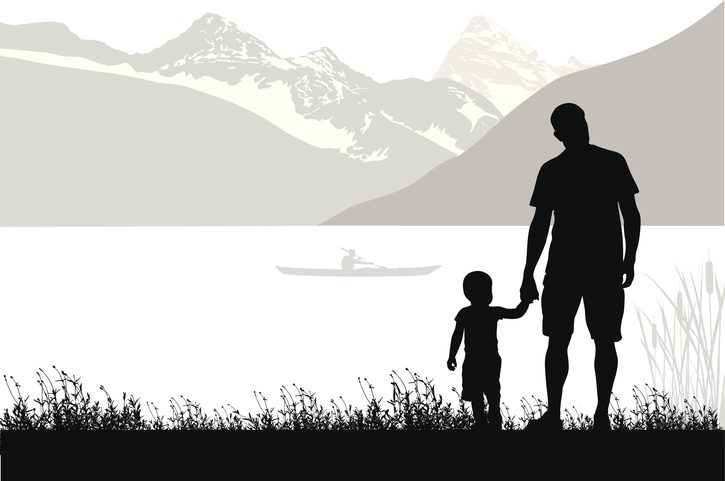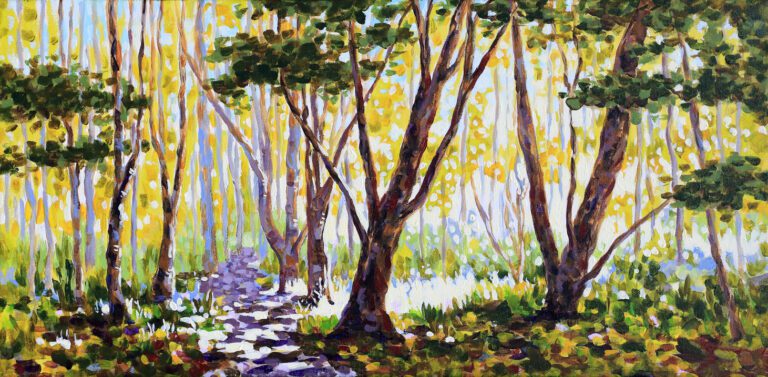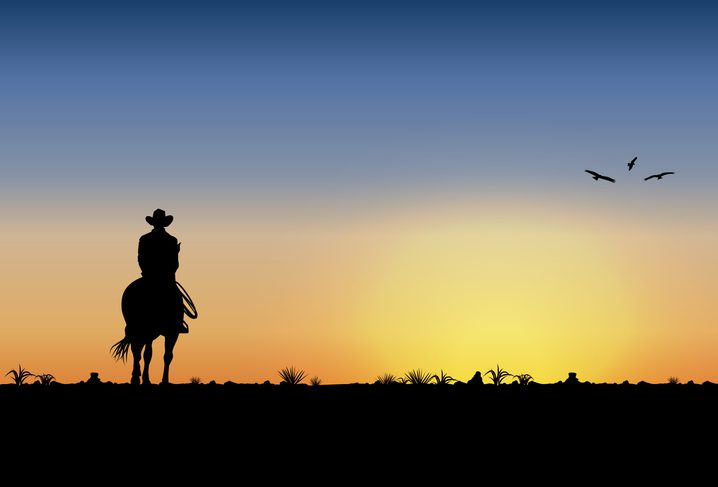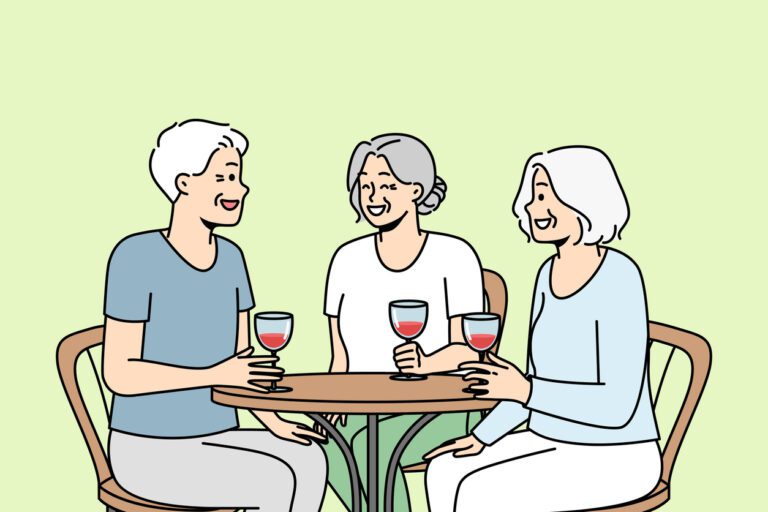“Salvage!” Tay yells, “salvage!” He’s using our keyword for useful junk someone has left behind.
My heart sinks. He’s holding a yabby trap that’s bright green and almost has the price tag attached. He’s pinched someone’s brand-new trap.
“Was it in front of a caravan?” I ask. “It’s someone else stuff! You can’t just grab it! Take it back!”
His face collapses in recognition. He turns around and walks back to the lake shore.
Two minutes later he runs into camp, bawling. I see a man disappearing over the hill back to his camp. My mind puts it all together, and I grab Tayan and run after him.
“He didn’t realise, mate!” I shout after him. “He thinks he’s in the bush with no-one around. He doesn’t yet know people leave their stuff out!”
The bloke turns around, an older fella, sixties, small and strong. He’s friendly enough. He says he hopes Tay has learnt his lesson, and no hard feelings.
We return to camp, Tayan still crying hard.
“It’s all right, mate,” I say. “These things happen.”
“He told me he’d boot me so hard in the bum it would make my eyes bleed!” says Tay, sniffling through his tears. Oh, shit.
***
Human actions seek resolution. An unreconciled action reverberates into the universe like a suspended chord on the piano, never completed, never resolved, always seeking the major key to finish its harmony. That vibration resonates in this moment, where I find myself caught by honour and expectation. Honour is a difficult thing to wear. It is the reputation a man upholds for himself, and by extension his family and wider community. The most difficult thing about honour is that a man is compelled to defend it, usually at the most inopportune moments. I’ve never been one to care about honour. I was a coward for my entire schooling. I preferred to run away, or talk my way out, or escape. A girl once asked me in high school, when another boy challenged me to a fight: Was I a chicken?
Yes, I was.
But now, here is my beautiful boy, Tayan, sitting on his camp chair crying, surrounded by the women of our convoy. They’re all looking at me, eyes narrowed, brows furrowed. How can I let my son be talked to in this way? His grandfather, Lo, is prowling around like a caged cougar.
Where is this guy, where is his camp?
And here I am, making dinner on the fire for my family, trying to ignore the growing unease in my belly. I was happy to let this go. Life is full of learning opportunities, and Tayan got a good one. He’ll never steal anyone’s stuff ever again. That man’s comments are no different from any I would have received as an 11-year-old boy from my father, or any other red-blooded male in the area. I learnt my lessons through blood and tears, and the angry words of the men in my life. Why can’t my son?
Yet while I think these thoughts, they feel disingenuous. We should move past this shit. Children are not second-rate citizens, to be talked to like that! They are persons who are learning, deserving of respect from adults. They don’t need to be patronised or insulted. If adults truly wish the next generation to be better than they were, they would talk to children with an understanding that they make mistakes, many, many mistakes. I have raised my sons to expect respect from others, to expect reasonable negotiation because that’s what they get from us. They haven’t yet learnt that the world is full of unreasonable people.
My anxiety is building. I feel my face tightening, my hands clenching. I know what I have to do, but I’m now justifying to myself why I don’t have to do it. Lo is still pacing. I’m afraid he’s going to do something stupid and rash. My wife is writing a nasty note to put on the man’s windshield. The others are scheming about what revenge they should take; let down his tyres, throw rocks at him, wake him up in the middle of the night. Jesus Christ, the guy just saw a kid steal his yabby trap!
The universe has dumped a big turd in my lap. I feel its whims twisting where I don’t want them, probing at my most vulnerable parts, the bits of myself that are unformed, things like courage and directness. Always the universe finds my soft spots, as if the lesson is customised. I know I have to find this guy and talk to him. My belly twists and churns. I feel sick. My mind is trying to predict the future: if I say this and he says that, then I say this and he says that. All my predictions end badly in my mind, with harsh words and violence, the way it happened when I was a boy. But my adult mind knows that this is not how it has to be.
I’m scared. He might be aggro. He might be drunk. But delving deeper into myself, I realise I’m not too worried about that. I’ve had enough real-world experience to know that it takes a long time for a discussion to turn physical. And I’m not a little kid anymore. I’m a 40-year-old with martial arts experience and a solid jaw.
I know what I have to do to make this right. It needs resolution. I feel the jarring notes of this suspended chord ringing into my future, into Tayan’s, if I don’t step in. This is not the way I want my son to learn this lesson, not in this way. We cannot leave with the story hanging like this. The remainder of our two-month road trip rests on the correct and proper completion of this symphony.
I head on down to the lake.
It’s been an hour or more since the incident, and I’m twisted up inside. My legs are heavy as I walk, and my guts feel like ropes, heaving with anxiety, but I’ve made my decision. I need to make this right.
I wander over the hill, and almost walk into the wrong caravan. I see what looks like the right place and stroll over, making sure everyone there gets a good long look at me before I get too close. There’s a man sitting in the late afternoon shade under his caravan awning.
“G’day mate,” I say. “My son stole your yabby net.”
***
I believe most people are reasonable. The unreasonable ones clearly state their unreasonableness through their dress code, their stance, their body art, their level of sobriety, their speaking volume, and their company. As I chat with Bill (for that’s his name), it’s clear that he is a reasonable fellow. He’s also been thinking since the incident and seems rather sorrowful for his actions. Without any prompting, he admits he went a bit too far.
His wife, Liz, crashes out of their caravan and quickly tells me how her husband’s actions were out of character. She kindly rouses on him for being such an old sook with a temper, and tells me how she considered coming up and apologising for him. I explain how we’ve been out bush with no-one around, and that my son truly did not realise that gear left out was someone else’s.
Bill understands, and said that he’d been an AFL referee for much of his life, dealing with “cheeky bastard” kids from the inner city, who would’ve likely talked back to him after his comment.
I ask if I could bring Tayan back with me to have a chat with them. Tayan is still wide-eyed and gun-shy when I find him, talking fishing with some caravaners at the shoreline. I tell him to be brave, that courage is doing the right thing even though it’s scary. He fights against me, almost collapsing in tears again from fear. I hold him and promise it will be alright, that I’m with him and nothing bad will happen. He holds my hand tightly as we walk in the growing gloom of dusk. Fires are lit around the lake and reflect in the smooth waters. My awareness sharpens to encompass that of my son, my beautiful, heartful son, hiding behind my leg, making his way towards the gallows, trusting his father that it will be okay. He’s a rabbit, sharpened whiskers alert to everything, scent, sight and hearing. I feel his vibrations through his hands and sense his fear, much like mine earlier as I approached this caravan.
How much greater is fear as a child, that raw and unbridled feeling that gallops away, carrying him with it. I remember as a child the physical size of adults, their power, strength and competence, the way they used words to shape the world. How they shaped it differently from my conception of it, and thus derived their power. They argued for their actions. A child can do nothing against a barrage that includes the physicality and strength, the internal rationality and logic, the sharp, piercing eyes and steamroller sound of an adult’s argument. And now, my boy is trusting me to take him into the lion’s den willingly, with that loud roar, the hackles and mane of a man becoming a monster in a child’s eyes.
Bill comes out to meet us, and Tayan hides behind my leg, all 11 years of him. He is still a child, and he has not yet realised that behind the threatening monster is a man.
“I was a bit rough, son,” says Bill. “Will you forgive me?”
And with that simple phrase the lesson is finalised, a complex rhythm of syncopated emotions finally sweeping together into a calming harmony. Tayan nods, not quite convinced, but we stay and chat. Liz comes out, and Tay gradually opens up, talking about our trip, fishing and birds. We ask for some tips on catching yabbies, what bait is best (cantaloupe, apparently). We discover where Bill and Liz are from, their family ties, where they are travelling, their history. We smile and laugh and talk and Tayan starts telling stories in his usual excited way, staying close, never letting go of me, his large square hands feeling dry and strong in mine.
Bill and I shake hands, and Tay does, too. We have closed the circle, resolved the music, completed the dance. Tayan and I walk back to camp, talking about how Bill was a nice man after all behind his monster mask. I wonder how this will play out in Tayan’s memory. Will this become an underlying understanding of life, or an overt memory he will recall? I think of key memories of my father and how they affect my vision of him years later. I want my son to remember my bravery as well, how difficult that was for me, my courage. I fantasise about a time 20 years from now. Tay and I will be chatting around a fire, and he will remind me of the time when that bloke yelled at him. “You were pretty brave, Dad. That had a big impact on me.”
I am an ordinary man, but I want to raise an extraordinary child. I think what may have been in that alternate universe where we left without talking to Bill, or if we had extracted vengeance. What impact would that have on me, on Tayan, on Bill and Liz? But now what lasting effect, what ripples now spread into the universe when I approach a supposed monster with empathy, and find a thorn in his foot?
About the Author: Nathanael Hunter
Nathanael writes about parenting, travel, and the strange, uncomfortable things that one thinks about on the road. He is also tall, and fond of hats.







